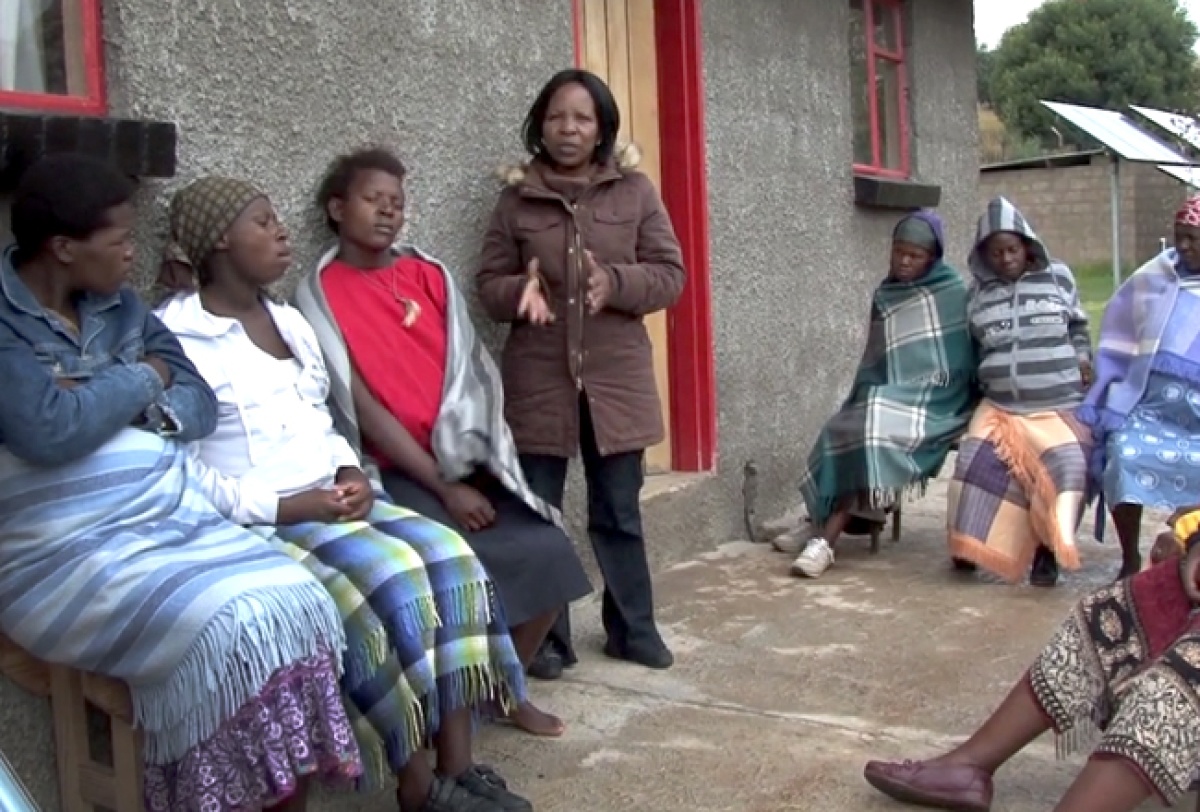In Lesotho, Nurse-Midwife Mary Lesesa Delivers more than Quality Care
Posted on May 6, 2014

This month we're honoring the work of Partners In Health nurses with a series of articles about their efforts to care for patients and lead others in strengthening health systems around the world.
Mary Lesesa is busy. As a nurse-midwife at Tlhanyaku Health Center in Lesotho, she plays a critical role in making sure expectant mothers, newborns, and families have consistent access to high-quality health care. On any given day she could go from delivering a baby to discussing family planning options to coordinating HIV education programs for the community.
Tlhanyaku Health Center is located in the mountains of northern Lesotho, a three-hour car ride from the nearest referral hospital. “Our country is so mountainous. Doing outreach and home visits to some areas is difficult as the cars cannot reach those areas, hence we travel by horses or on foot,” the 37-year-old nurse says.
This rugged geography is a major barrier to health care. Lesotho has one of the highest maternal mortality rates in the world; one in 62 women will die during pregnancy or childbirth. That’s why PIH/Lesotho has constructed maternal waiting homes at each of its mountain clinics and accompanies mothers from their villages to the health center before they’re due.
HIV also poses an enormous burden in the tiny country. As noted in a recent PIH Report, Lesotho has an adult HIV prevalence of 24 percent, and nearly 60 percent of maternal deaths are estimated to be HIV-related.
Tlhanyaku is one of seven hard-to-reach areas in which PIH/Lesotho collaborates with the Ministry of Health to operate a health center. At all of these sites, nurses are the lead on-site clinicians. As such, they juggle a multitude of medical tasks while simultaneously providing administrative and logistical support to the organization.
“Nurses at PIH/Lesotho are highly trained clinicians who provide complex health care services,” PIH/Lesotho Country Director Dr. Hind Satti says. “They’re also skilled managers who oversee the operations of the health centers.”
In recent years, PIH/Lesotho’s comprehensive Maternal Mortality Reduction Program (MMRP) has made enormous strides in increasing the number of women who deliver their children in safe environments with trained medical staff at the ready. The program extends far beyond safe deliveries, however, and is designed to significantly reduce the risk of mother-to-child HIV transmission.
“Our efforts to stop HIV transmission are well coordinated,” says Lesesa, who has worked for PIH/L since 2010. She notes that from the moment a woman is pregnant through the child’s first 18 months of life, PIH/L provides robust clinical and social support, and regular testing to ensure the child does not have HIV.
“From a mother’s first antenatal care visit at which she’s tested for HIV, we accompany families. We provide education and support, and we continue to follow up with them,” she says.
Lesesa and her colleagues at PIH strive for an HIV-free generation in Lesotho. Thanks to dedicated nurses like her, we’re heading in the right direction.

